The best foundations with SPF to shop in 2025 reviewed, by our makeup experts
Our beauty team tests and reviews the best foundations with SPF that will provide bonus protection over your daily sunscreen
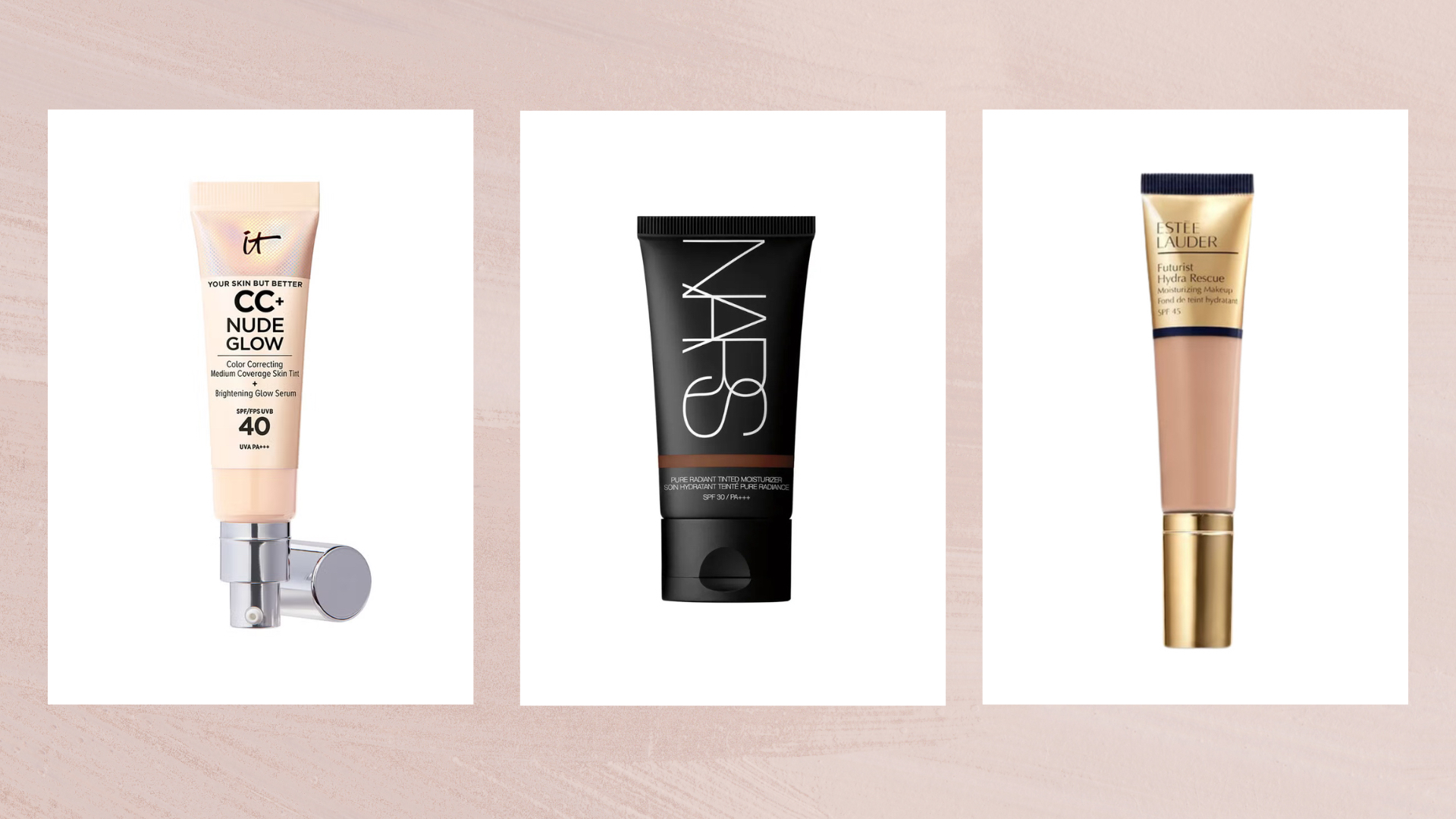
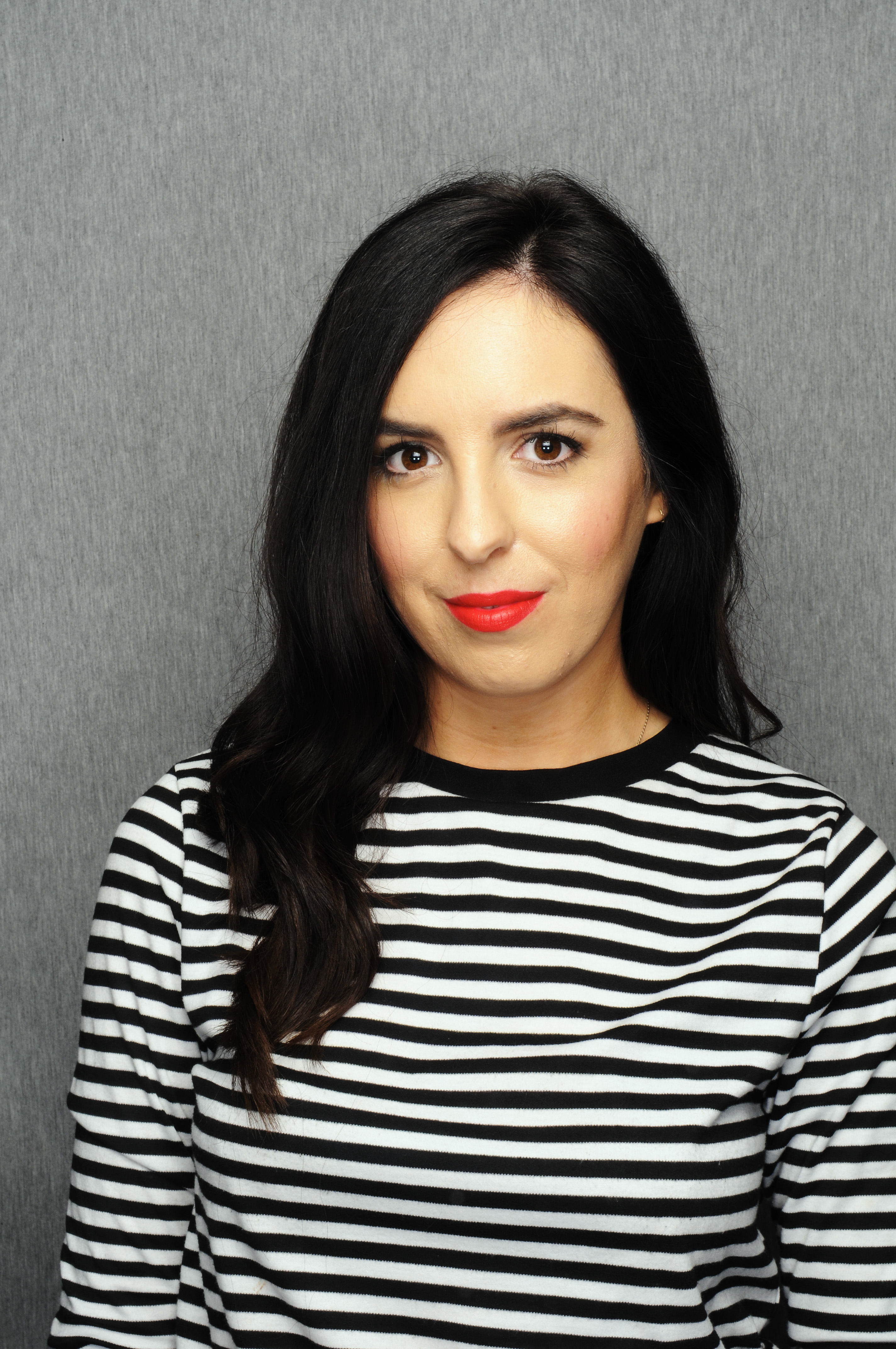
As with any makeup base, the best foundations with SPF should tick all the boxes in terms of your desired coverage and finish and match your skin tone well. But they take this benefit list a step further with the inclusion of some UV protection, too. However, there are some things you need to know about how much of a benefit this truly adds.
Ideally, the best foundations with added SPF won't compromise on having a luxurious feel or flawless finish. But, can they replace the best facial sunscreen even then? The short answer is definitely not. A separate sun cream for the face is essential to protect your skin sufficiently.
But that's not to say that the SPF rating of a foundation is incorrect; by law, rigorous testing is required to put this on the bottle. But to achieve adequate protection from any sun protection product, you have to apply a thick layer – around a teaspoon's worth to evenly cover your face and neck – which is probably a lot more foundation than you would usually wear.
In other words, think SPF in a foundation as a beauty bonus, supporting your dedicated facial sunscreen. Apply this first, wait a minute or two for it to settle, and then move on to makeup. “To create an even layer of your SPF foundation, use a buffing brush and apply your base in circular motions,” says makeup artist Rose Gallagher, UK&I ambassador for IT Cosmetics. After much testing, we've shared in-depth reviews of those we deem the very best foundations with SPF.
The best foundations with SPF, reviewed by our beauty team
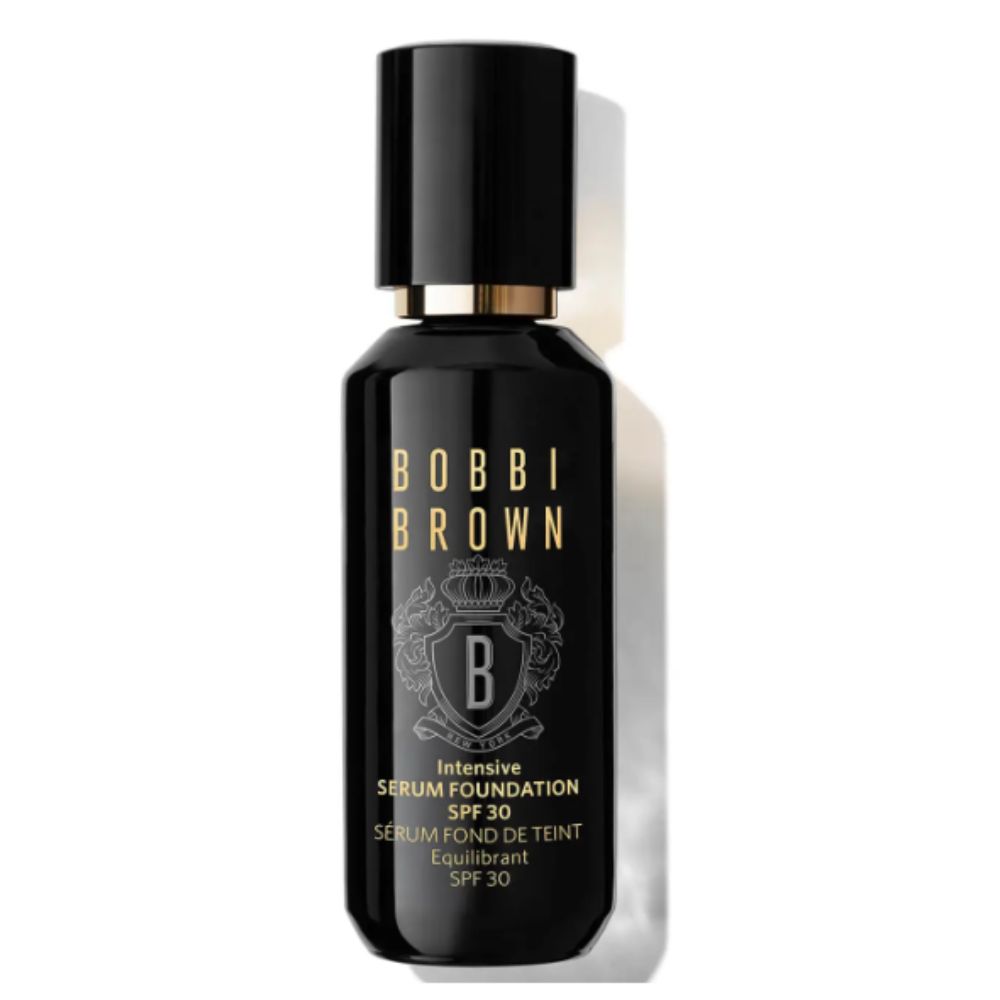
RRP: £59 | Shades: 18 | SPF: 40/30 | Key ingredients: Cordyceps, deep sea ferment, vitamin E
This is one of those products that you can’t wait to get out of your makeup bag in the morning. The pump action is smooth and the foundation is creamy, not runny, so it doesn’t trickle down your hand if you're using that as a palette. Half a pump was enough to cover our testers' face and necks – so one bottle, though undeniably expensive, will at least last well.
The secret is 75% skincare-inspired ingredients. The SPF 40/30 ratings are some of the highest among this list (this one also boasts protection from free radicals, blue light and pollution), but don't affect its silky texture. In fact, of all the foundations here, this one felt the most imperceptible, as if we weren't wearing anything other than a great face cream. Its coverage is on the lightweight side (it lets your natural skin peek through), so if you want something that'll completely cover uneven texture or blemishes, it may not be right for you.
Reasons to buy: Glowy finish; hydrating
Avoid if: You have a smaller budget
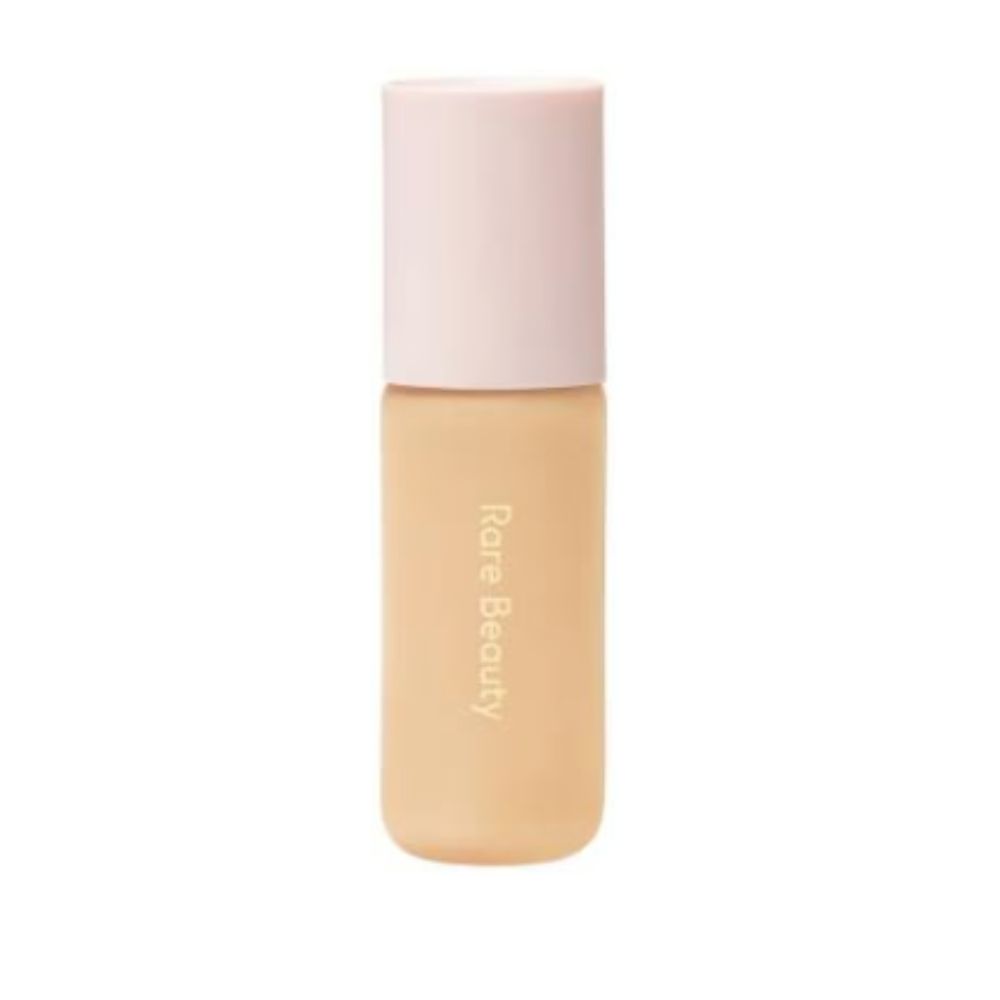
RRP: £29 | Shades: 24 | SPF: 20 | Key ingredients: Vitamin E, botanical blend
After wearing this tinted moisturiser for a week, we're also convinced it's one of the best lightweight foundations. It comes in a squeezy tube, which made it easy to apply and blend. However, caution is required so as not to apply too much; we made the mistake of thinking we'd get a moisturiser-like finish when, actually, you get light to medium coverage with a blurring effect – so it's safe to say a little goes a long way.
As for the eexture, it's thicker than a traditional moisturiser but still blends well for a "your skin but better" finish. Along with SPF 20, it's formulated with vitamin E and Rare Beauty's signature botanical blend of lotus, gardenia and white lily – all of which left our skin feeling soft and hydrated. All in all, if you seek a lightweight base with a little added skin protection and radiant results, this could be the one. For a natural, healthy glow, we also recommend applying a rosy cream blush alongside this tinted moisturiser.
Reasons to buy: Moisturises; blurs imperfections
Avoid if: You want high SPF
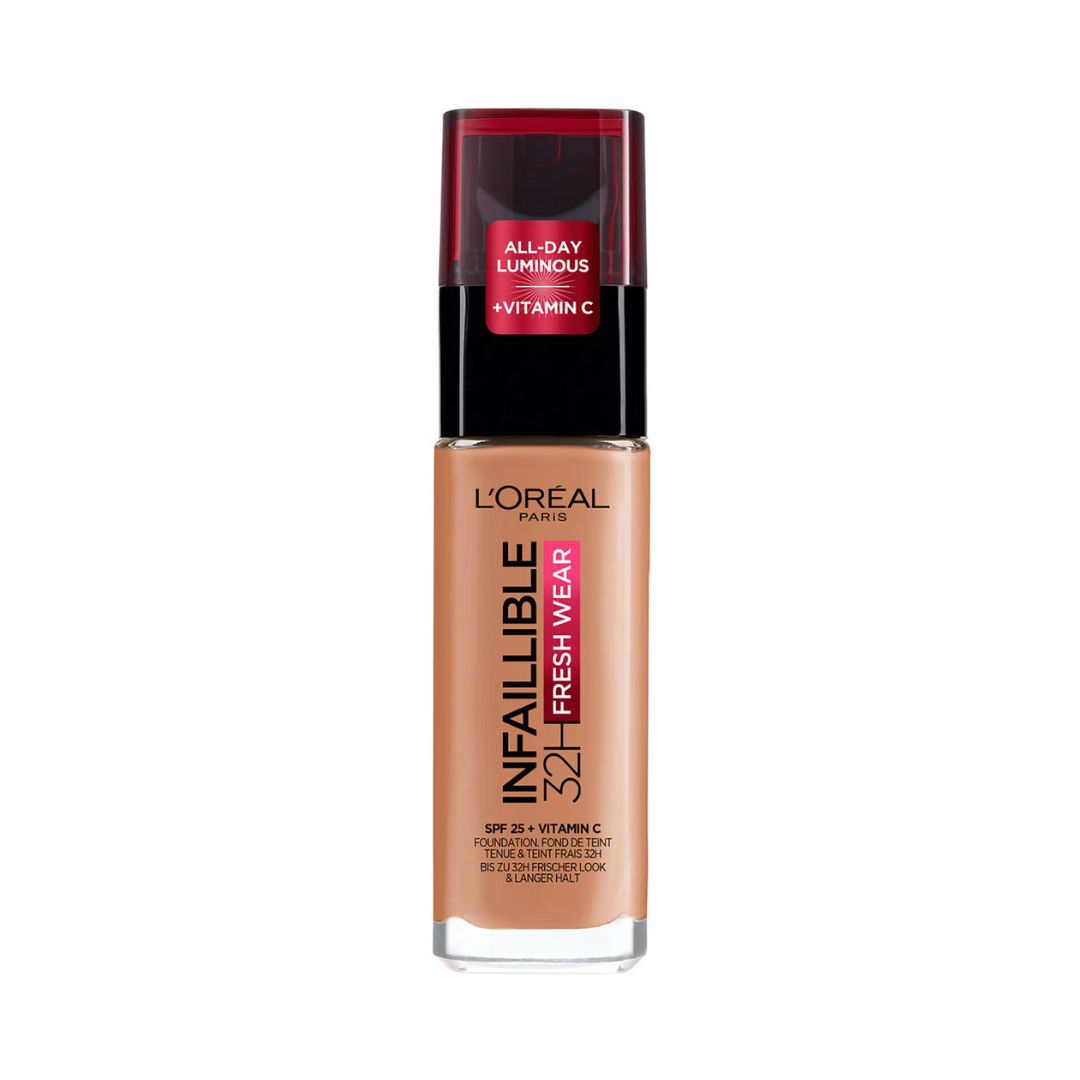
RRP: £13.99 | Shades: 40 | SPF: 25 | Key ingredients: Vitamin C, oxygen technology
Much as we love the best drugstore foundations, it can be challenging for budget bases to rival their expensive counterparts. This is particularly true when you throw an extra formulation challenge in the mix, like SPF. So when we tested the L'Oréal Infallible Fresh Wear SPF Foundation we were amazed by how flawless and smooth it left our skin, just like some of the high-end options we tried.
L'Oréal claims this foundation lasts for up to 24 hours and, though we couldn't wear it for quite that long, it didn't budge during a 12-hour day, which is still impressive. With its semi-matte finish, we wouldn't be surprised if it did last an entire day and night. It's also buildable, but our blemishes were covered with just one layer and we found we didn't need another. However, you can apply more without it pilling or caking to get fuller coverage.
Reasons to buy: Brilliant shade range, breathable formula
Avoid if: You want a dewy finish
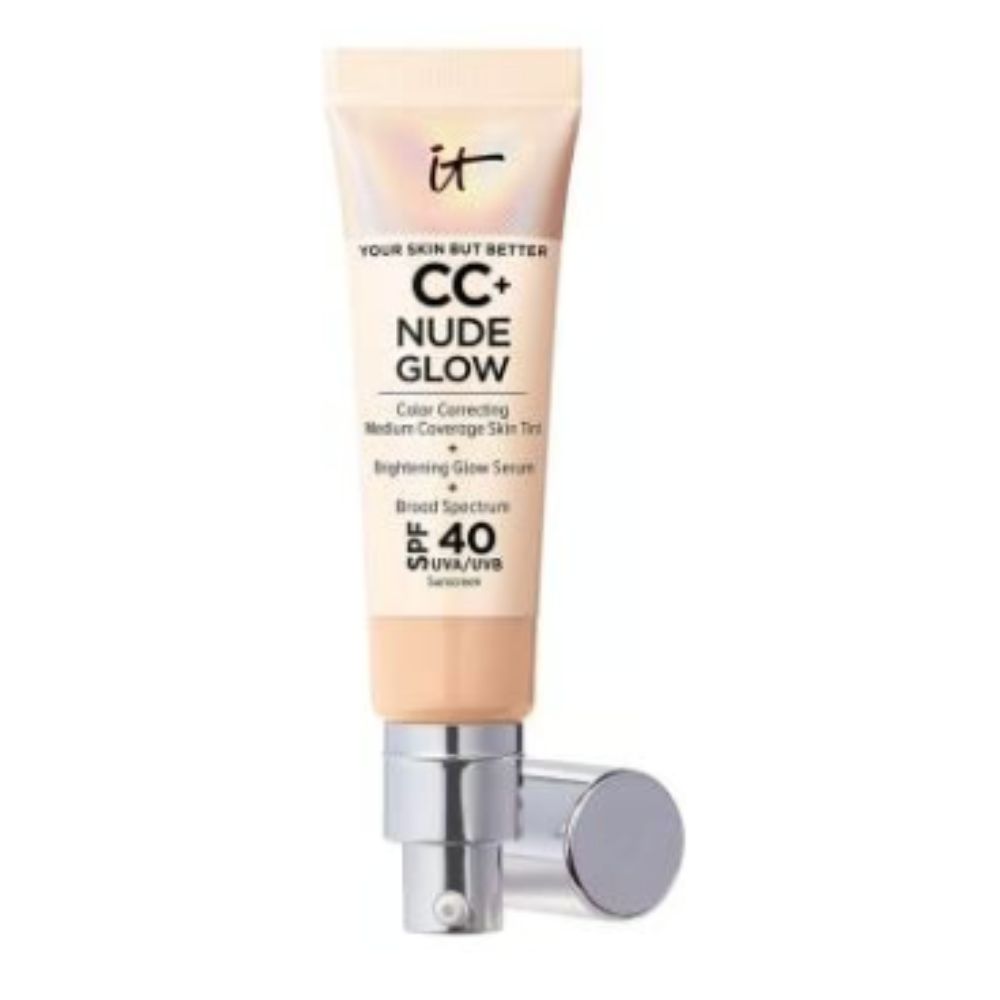
RRP: £37 | Shades: 22 | SPF: 40 | Key ingredients: Niacinamide, hyaluronic acid, green tea extract
Torn over foundation vs CC cream? A common misconception is that the latter bases lack coverage, but anyone who’s tried IT Cosmetics’ award-winning CC+ Cream will attest to the flawless-looking finish. The Nude Glow edition is slightly softer than the original bestseller but still corrects uneven tone. It's the perfect example of a "skindation" – that is a makeup base with skincare ingredients, which make up an impressive 90% of the formula here.
No doubt thanks to niacinamide, which is revered for its brightening results, moisture-magnet hyaluronic acid and antioxidant green tea extracts, our skin appeared filtered with a smooth and bright finish. It has a subtle, sweet, sherbety fragrance, which we liked, and is ideal for anyone who doesn’t want to wear a sheer skin – the coverage is an excellent confidence boost. It ticks off many of our non-negotiables, including hydrating ingredients, a glowy finish and decent, buildable coverage.
Reasons to buy: 90% skincare-based formula
Avoid if: You want very full coverage
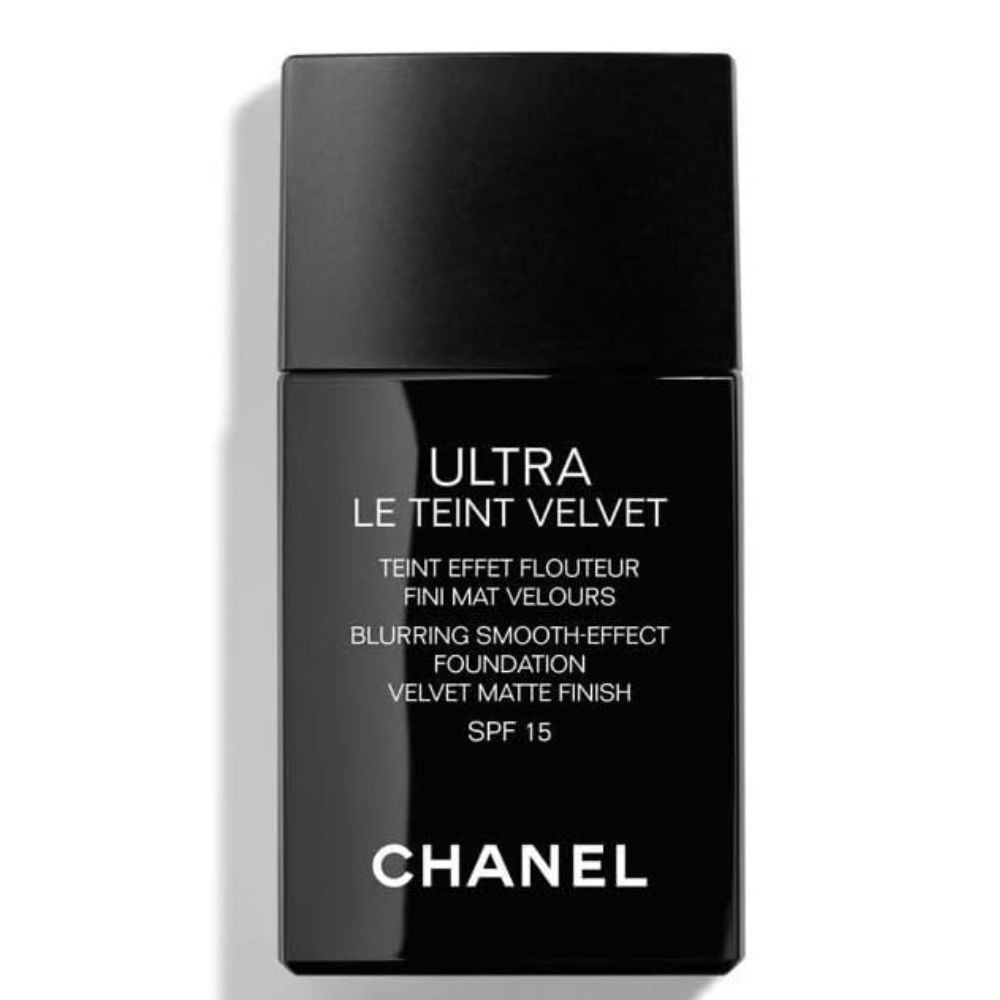
RRP: £46 | Shades: 15 | SPF: 15 | Key ingredients: Hemispherical powders
This formula is quintessentially Chanel – chic, elegant and altogether luxurious. We found it looked best when applied with fingers rather than a brush, as the warmth of our hands seemed to fuse the foundation with our skin to make everything a lot smoother and more even. For us, the coverage was ideal. The blurring effect powders helped obscure any uneven texture, redness or areas of pigmentation in our complexion without caking completely. Our skin still looked like skin, only better (if you want to cover dark spots or acne, you might want to use a separate concealer).
Our dry-skinned tester usually avoids matte finishes, as even the best matte foundations can latch onto dry flakes for a base that looks "off". But Chanel's Ultra Le Teint Velvet is an anomaly. The result – which also has impressive staying power – is creamy, natural and smooth without ever looking flat.
Reasons to buy: Lasts well on combination skin
Avoid if: You want more coverage for blemishes
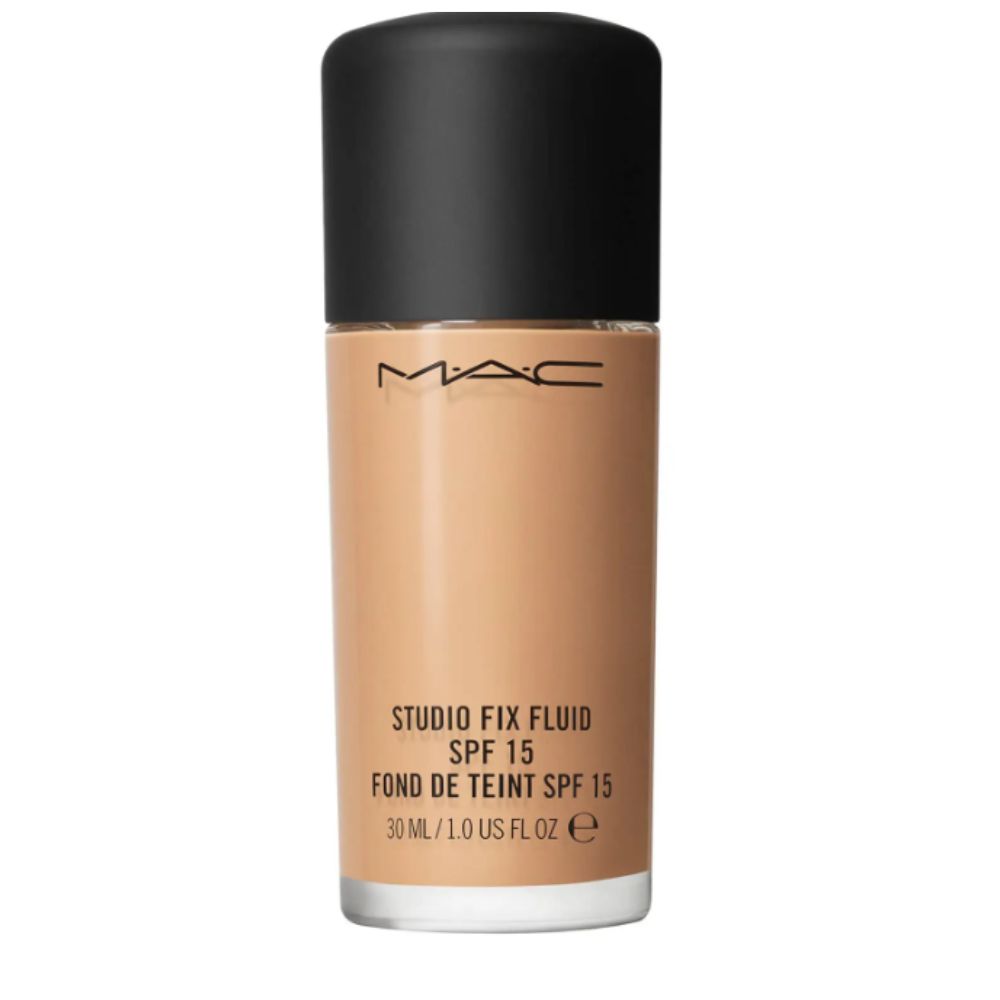
RRP: £36 | Shades: 71 | SPF: 15 | Key ingredients: Hyaluronic acid, red algae extract
Now, this foundation's pump used be a separate add-on, which made dispensation trickier if you went without, but did get our approval in that a single pump could be used with all future purchases. However, perhaps due to consumer demand, MAC seems to have reverted to including the pump as standard going forwards. Though more convenient, we do think this is a bit of a shame sustainability-wise.
Despite this, we want to stress that it's still a great foundation. You can build up the coverage from medium to full, so blemishes and dark spots are easily disguised from view, and it's non-comedogenic. It has a modern, matte finish that we'd describe as polished and perfected, with a natural, healthy brightness that we weren't expecting. As well as having an inclusive shade selection – making it one of the best foundations for dark skin in our guide – this looked smooth, creaseless and even for hours. It’s also sweat- and humidity-resistant, so if you prefer a fuller coverage foundation during the warmer months, this will stay exactly where you want it to.
Reasons to buy: Huge shade range; 24-hour wear
Avoid if: You want a high SPF
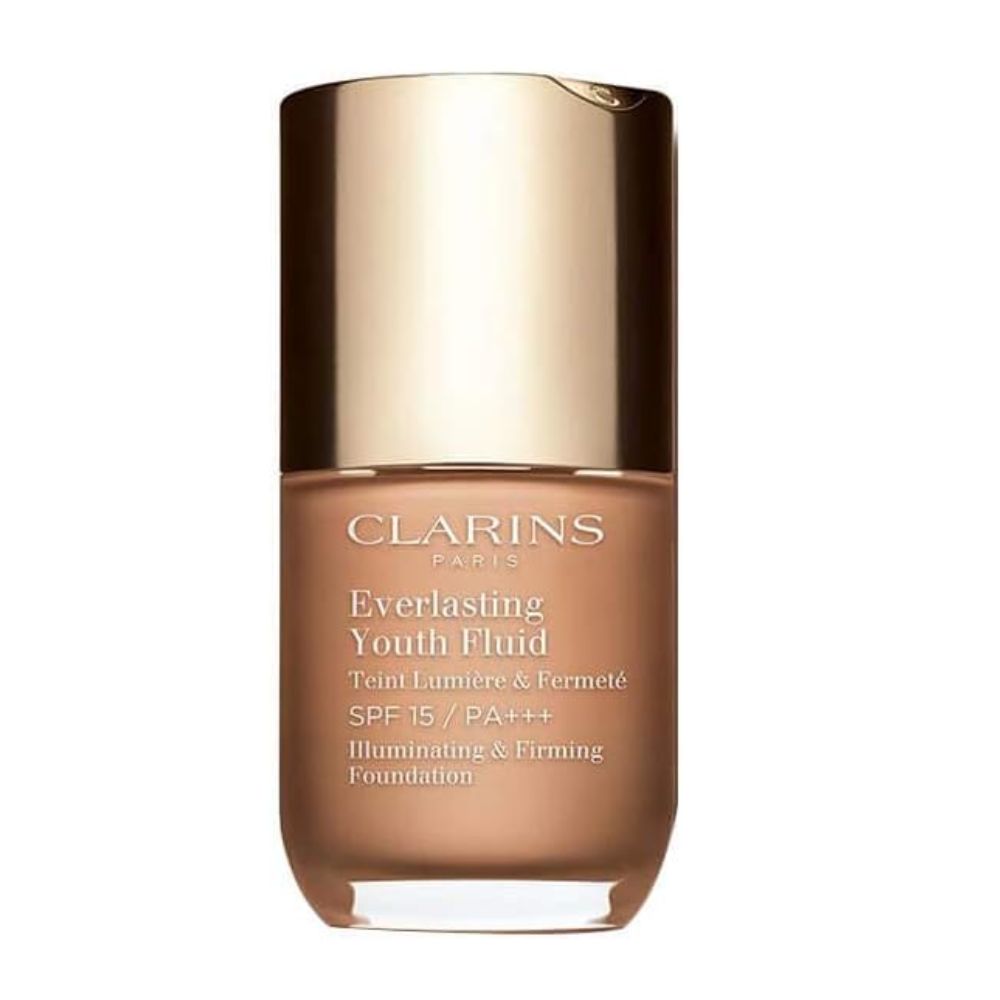
RRP: £40 | Shades: 24 | SPF: 15 | Key ingredients: Red jania, chicory
If fragrance in skincare and makeup isn't your thing, look away now, because this Clarins number has the most beautiful, fresh aroma that lingers. It was the thickest formula we tested, yet glided across our skin effortlessly. We tend to use the back of our hand as a palette so, being slightly richer a formula, this was easier to control. If you’re after a baby-faced sheen, you might be left wanting; Everlasting Youth Fluid yields a healthy gleam rather than an overly dewy finish.
A big perk here is that the pigments and soft-focus powders disguise any bits of skin you’d rather not reveal. The coverage is also fantastic, while chicory works to create a denser collagen network and improve skin's luminosity and firmness. To help shift any dead skin cell build-up, there's also red jania extract included. We're intrigued to see if we notice the long-term benefits of smoother, more refined skin, but until then, we love this flawless base.
Reasons to buy: Firming effect, lovely scent
Avoid if: You want something very luminous
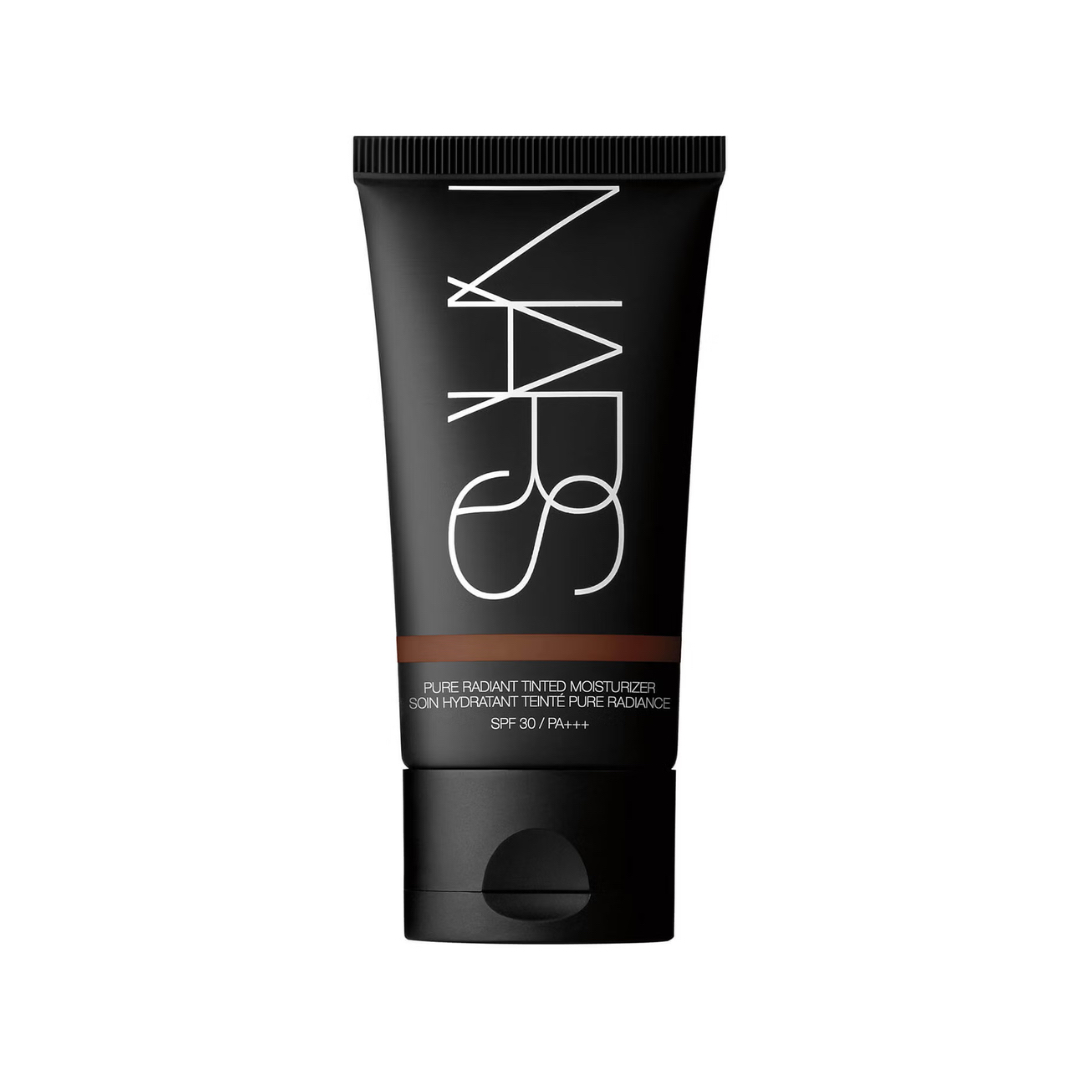
RRP: £38 | Shades: 16 | SPF: 30 | Key ingredients: Kopara, vitamin C derivative
Housed in a squeezy tube, NARS' Pure Radiant Tinted Moisturiser formula is a bestseller and another moisturiser we're sneaking in here. Because, as well as SPF, it has surprisingly good coverage for tinted moisturiser (we'd probably describe it as having medium coverage), so it's more than earned its place. And packing hydrating and softening Kopara extract and a vitamin C derivative, there are skincare ingredients at play here, too.
Buffing into the skin with ease, and working well with either a brush or fingers, it yields that healthy "lit from within" glow that instantly perks up the skin, with a kind of satiny finish. However, despite a 16-strong shade range, there aren't many deeper options, so sadly it isn't suitable for all.
Reasons to buy: Decent coverage for a tinted moisturiser, healthy glow
Avoid if: You want something very matte
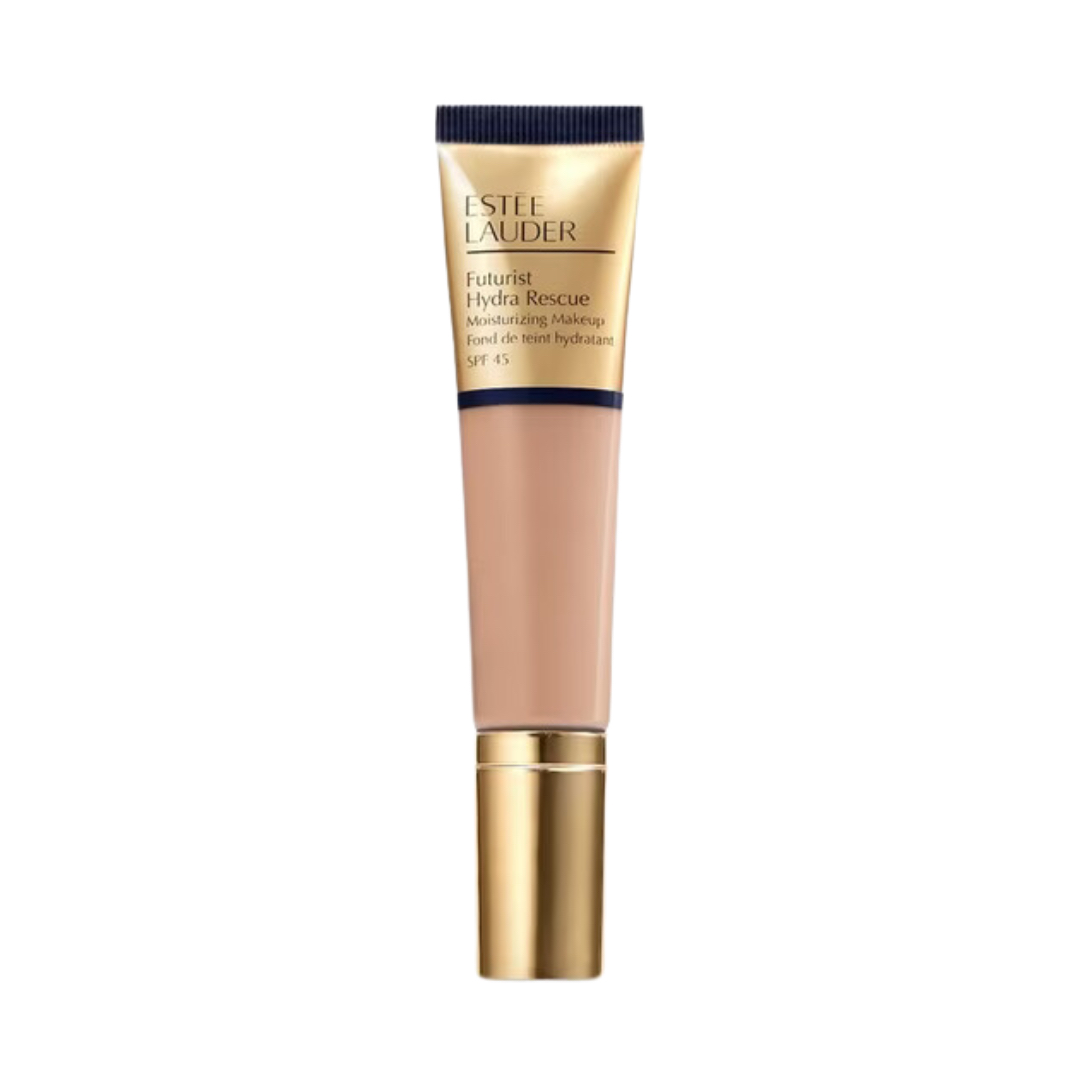
RRP: £42 | Shades: 28 | SPF: 45 | Key ingredients: Ion-charged water complex, chia seed extract, probiotic technology
With one of the highest SPF ratings on our list, the Estée Lauder Futurist Hydra Rescue is a solid choice for a little extra defence against sun damage. And yet its formula is light, breathable and deeply moisturising. It promises a 12-hour radiant glow as if flicking on your complexion like a light switch.
Senior beauty editor Rhiannon Derbyshire loves this Estée Lauder base. “This is one of my all-time favourite foundations; it's lightweight but still has a nice, buildable coverage and gives a flattering, radiant finish. It's also really moisturising, which is a bonus for my thirsty skin. To me, it's the perfect hybrid of a tinted moisturiser and a foundation – it feels super comfy to wear but still gives a flawless finish with great staying power. Truthfully, I didn't realise it had SPF until very recently (some foundations with this can look a bit ghostly), but that just gives it extra points in my book.”
Reasons to buy: High SPF, moisturising
Avoid if: You have oily skin, as it can slip
How we tested the best foundation with SPF
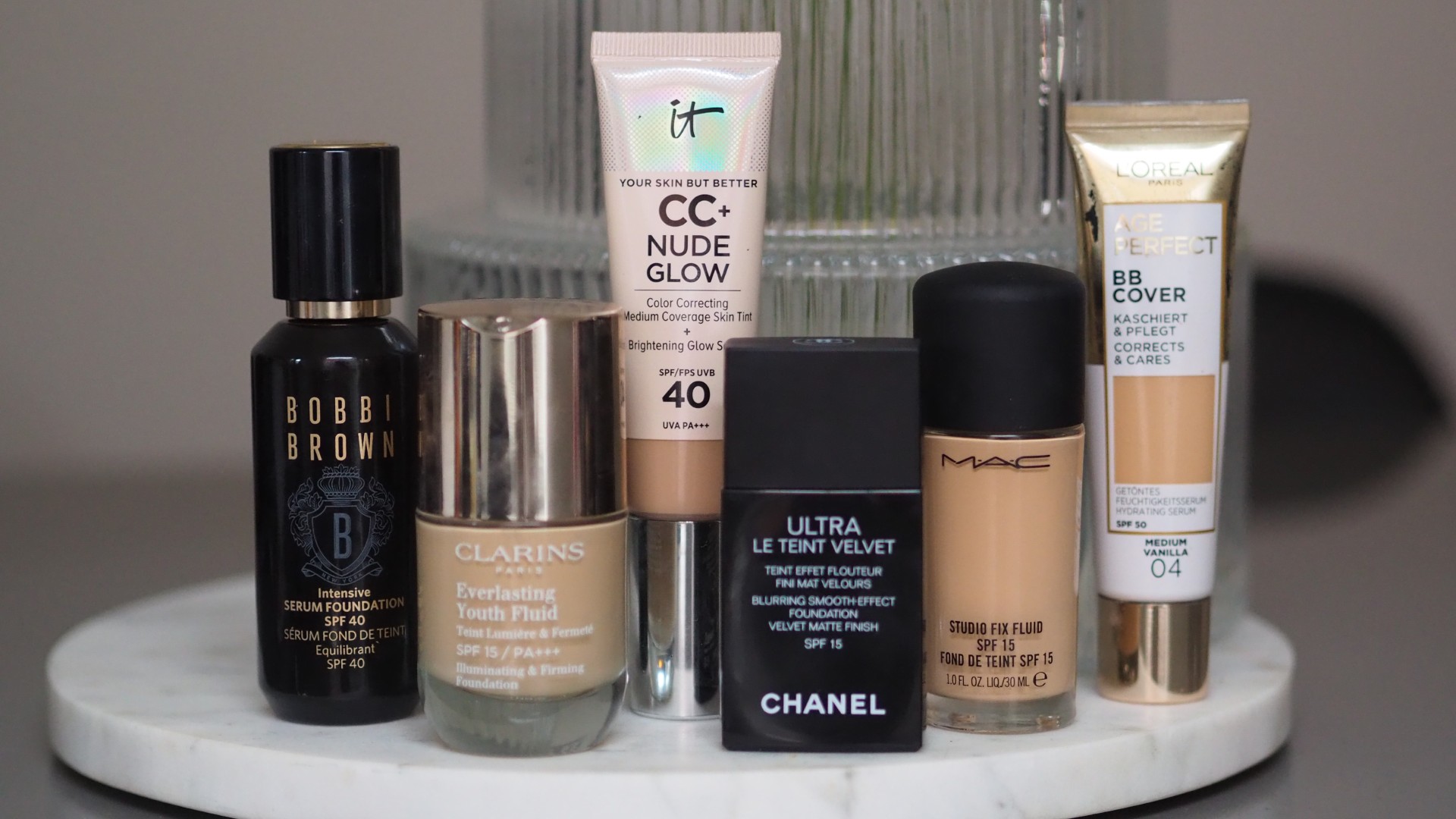
A selection of the foundations with SPF that we tested for this feature
As the inclusion of SPF can change a foundation's texture, it was paramount we ensured that the formulas included on this list felt comfortable on the skin. As such, we wore each product for at least a couple of days to test the feel of the formula. Below are the factors that our testers took into consideration when wearing each formula to decide if it was truly one of the best.
- Price
- Packaging
- Shade range
- Consistency
- Coverage
- Finish
- Any additional skincare ingredients
- Longevity and wear
As any dermatologist, facialist or beauty editor will tell you, facial sunscreen is a non-negotiable element of a morning skincare routine. Therefore, we also tested all of these foundations on top of our usual sunscreen as that "bonus" layer of protection, assessing how well they both applied and wore on that basis.
How to choose the best foundation with SPF
If you’re planning on putting your best face forward for a photo you deem worthy of a spot on your Instagram grid, it’s important to know about the type of filters used in your foundation with SPF.
“With flash photography, SPFs can flash back in photos, essentially leading to your face looking much paler in the photo than it does in real life,” Rose explains. “A physical or mineral-only SPF means you won’t see any flashback.” Often found in the best sunscreens for sensitive skin, mineral filters include zinc oxide or titanium dioxide, so look out for those in the marketing descriptions or on the ingredient list of a foundation. The following are also important considerations to make before buying.
- Price: As with any beauty purchase, it's a good idea to have a firm idea of how much you can and want to spend before browsing.
- Finish: Do you prefer to look glowy, matte or somewhere in between? Have this in mind when shopping to ensure the formula will help to achieve this.
- Skincare benefits: Rose notes that SPF can make a formula denser and recommends "[Looking] out for ingredients like niacinamide, collagen, and hyaluronic acid to allow for a fresh, hydrating finish" to balance this out.
Does the SPF in foundation work and can it replace your usual SPF?
As mentioned, nowadays you’ll find UV protection in everything from face moisturiser with SPF to foundations. But is it possible to rely on moisturiser and makeup as your main form of sun defence? Abi Cleeve, MD of Ultrasun, says not. Firstly, the SPF rating stipulates the level of protection from UVB only. “Many foundations with SPF only offer protection from UVB rays and not UVA rays, which penetrate the skin’s surface and do long-term damage,” she says.
Another issue is the amount you need to apply to achieve the SPF on the bottle. “The official guidelines given by Colipa – the European cosmetic industry association – are 2mg/cm2; approximately one teaspoon's worth for the face,” says Abi. As noted above, "SPF foundations are applied a lot more thinly, thus not providing the same level of protection as 'pure' sunscreens.” The message is clear: apply a separate sunscreen first for rigorous protection. Abi recommends an SPF of 30 or more: “Choose one with broad spectrum protection to prevent damage from both UVA and UVB rays."
What are the benefits of foundation with SPF?
While even the best SPF foundation won't provide the same level of broad-spectrum cover that sunscreens do, Abi still sees SPF in makeup as a positive. “SPF in foundation is great as a bonus and also contributes to the overall awareness of the need for UV protection," she says.
Think of it as the supporting cast member to your dedicated facial sunscreen lead; as Abi stresses: "A separate SPF is vital for long-term protection.” Apply your dedicated sunscreen as the last step of your skincare routine before your makeup.
What does the SPF number mean in skincare?
Though we generally use the term to describe sun protection products, like sun cream, the SPF rating only applies to UVB rays, which are the kind that cause the skin to burn. As noted by skincare brand CeraVe, SPF 30 blocks 97% of UVB rays, while SPF 50 blocks 98%.
Protection from UVA rays, which cause premature ageing in the skin, may be indicated by a PA or star rating. However, the key term to look out for is "broad spectrum". This indicates that a formula shields skin from both UVA and UVB radiation for well-rounded protection. To maintain this protection, reapply your chosen sunscreen every two hours.
Sign up for the woman&home newsletter
Sign up to our free daily email for the latest royal and entertainment news, interesting opinion, expert advice on styling and beauty trends, and no-nonsense guides to the health and wellness questions you want answered.

Stephanie Maylor is a Beauty Editor working across five national magazine titles, with almost 20 years' experience in the industry. She has written for many brands, including woman&home, Grazia, Now, More!, Fabulous, NW, Woman, Woman's Own, Woman's Weekly, Essentials, Best, Chat, and OK! online.
In 2010 she launched her own beauty blog, which was shortlisted for Best Beauty Blog in the 2011 and 2012 Johnson & Johnson Beauty Journalism Awards. She has interviewed many high profile industry experts and celebrities including Alesha Dixon, Twiggy and Christina Hendricks.
- Kenedee FowlerShopping Writer
- Lucy Abbersteen
-
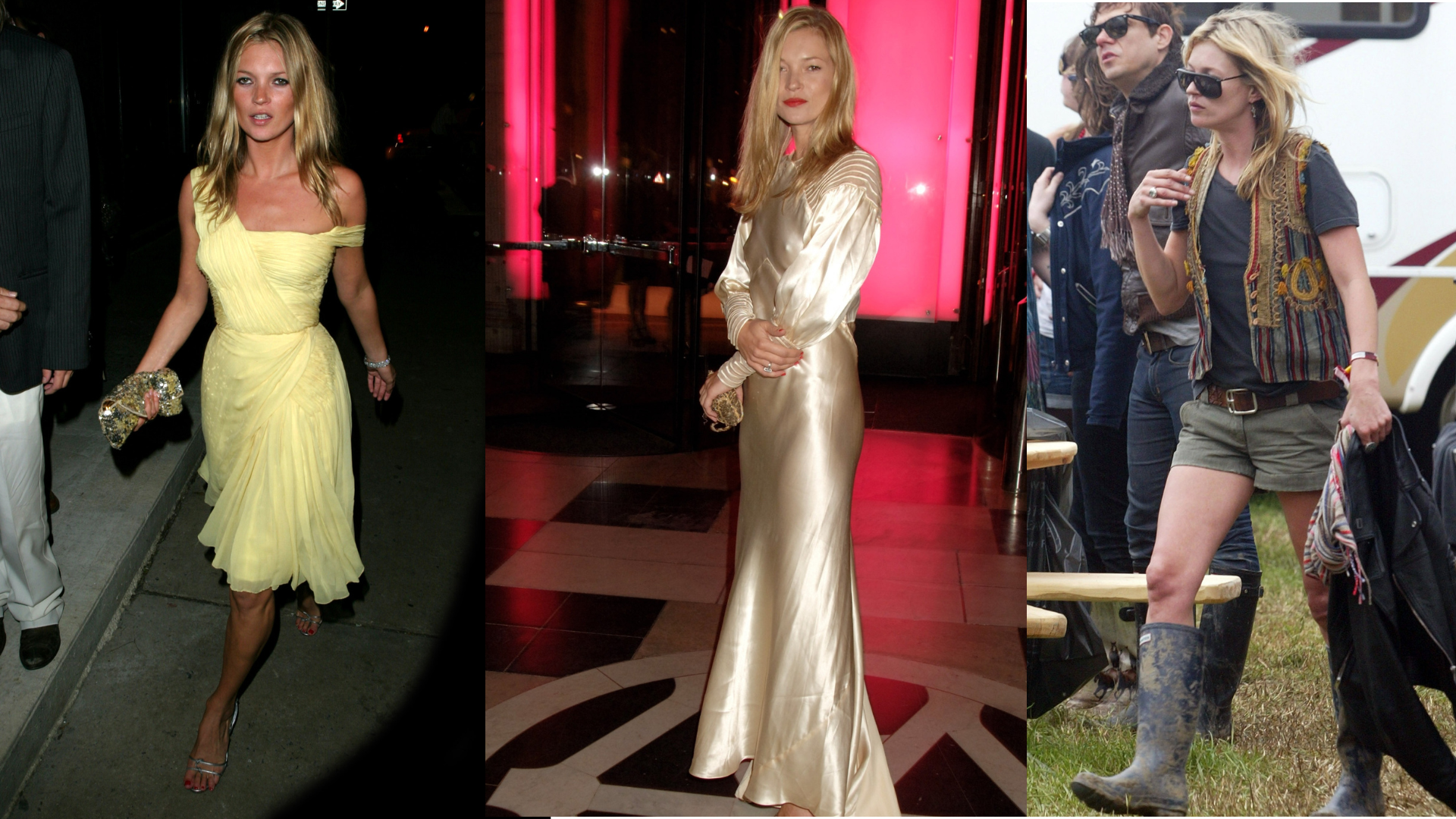 Kate Moss's best looks, from 90s slip dresses to leopard print staples
Kate Moss's best looks, from 90s slip dresses to leopard print staplesEffortless and stylish, our favourite supermodel has an iconic style that can easily be recreated
By Kathryn Lewsey
-
 Helen Skelton's layered look is giving me plenty of country chic style inspiration this Earth Day
Helen Skelton's layered look is giving me plenty of country chic style inspiration this Earth DayShe paired a mocha-coloured jumper with a blue shirt and a pair of wellies by Kate Middleton's favourite brand
By Caroline Parr